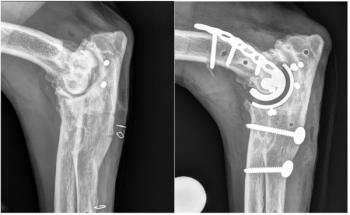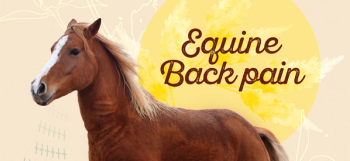
Emergency duty: You can 'minimize pain'
Recently I was visiting with a friend who is still in clinical practice, and our talk turned to emergency duty.
Recently I was visiting with a friend who is still in clinical practice, and our talk turned to emergency duty.
Having to respond to urgent situations at any time is part of dairy practice. While few will ever look forward to the night or weekend "on call," there are some things that can be done to "minimize the pain."
I would begin by having some definite policies that are clearly defined and communicated to both staff and clients. Define what constitutes an emergency as best you can.
Define your policies
The phrase "a situation where the animal's health will be significantly compromised by waiting until normal hours" provides a starting point. Also decide whether you provide emergency service to producers who do not use you on a regular basis, and what your fees are for various time frames. Once these factors are defined, all members of the practice need to heed them.
Charles E. Gardner
The reason for all to observe practice policies is to standardize client expectations. If Dr. A comes out on Sunday and does a displacement surgery at the standard fee, that producer will assume that is the practice policy. If the next time Dr. B is on call, and puts the call off until Monday, the client is upset and Dr. B is made out to be the "bad guy". The same will happen if Dr. B does respond on Sunday, but tacks on an emergency fee. Clients will accept any reasonable policies, but they need to know what to expect.
The question of providing emergency service to producers who do not use you routinely has several dimensions.
Several dimensions
Certainly none of us like to be "used," which is how we may feel when we are asked to do the prolapse at midnight, while a neighboring doctor does the palpations at 9 a.m. Yet responding to emergencies can be the means to gain access to a new client. Refusing will almost surely offend the producer who needs help. You can also count on that person telling people far and wide that you let his best cow die.
One compromise is to provide service to all, but to use a much steeper fee schedule for "non-client" emergencies. It is wise to make sure the non-client is aware of this policy. It may induce them to switch to your practice, if their regular doctor makes a habit of not being available on nights or weekends. Even if they don't change, you will at least be well paid when you have to respond, and the stigma of refusing service to a direly ill animal is avoided.
It makes sense to me to apply some type of emergency fee to all calls outside normal working hours. The bulk of that fee can be paid to the doctor providing the service, so that some of the pain of the 2 a.m. calving is relieved by the knowledge of remuneration.
Client education can go a very long way to reducing emergency calls.
Teach your producers
Conducting clinics where you teach producers how to treat milk fevers, perform routine deliveries, and even replace prolapses is an excellent tool. Your clients will be grateful, and you will have your sleep interrupted far fewer times. Of course you also need to explain when they do need to call you, so that you can avoid a disaster that you could have avoided by earlier intervention.
Client education should also cover recognizing key signs early, and thus avoiding a crisis. The late pregnancy cow that has her tail slightly raised and is acting uncomfortable has too often been let go until the calf is dead and decomposing. Teaching producers what these signs mean will help both of you.
A final component of client education involves them being prepared when you do arrive for an emergency.
Be prepared
Simple things like having the cow restrained, having help available, having the pen clean and bedded, having adequate light and plenty of clean, warm water all make the procedure go easier and with a better outcome. Proper positioning of a down cow while they await your arrival can avoid nerve and muscle damage.
The final component of taking the pain out of emergency call is our own attitude.
Attitude adjustment
I can recall going into most weekends dreading them, and somehow hoping that calls would be light. I usually ended up disappointed, and eventually got frustrated and resentful. As the weekend wore on, my attitude deteriorated, and the poor individual who caused me to be disturbed early on Monday morning usually wished he had not.
This approach served no one; not me, not the practice, and certainly not the producer. I eventually learned to do an "attitude adjustment" at the beginning of the period. I would start out by reminding myself that legitimate emergencies deserved professional help. My job was to provide it. I resigned myself to a busy schedule, and went to sleep expecting to be awakened. (If it did not happen, so much the better, but either way I was okay.) When I approached emergency duty in this manner, the outcome was better for all concerned.
Emergency duty will continue to be an aspect of dairy practice that most do not enjoy. Having clear policies that both doctors and client understand is a start to making it less unpleasant.
Newsletter
From exam room tips to practice management insights, get trusted veterinary news delivered straight to your inbox—subscribe to dvm360.






